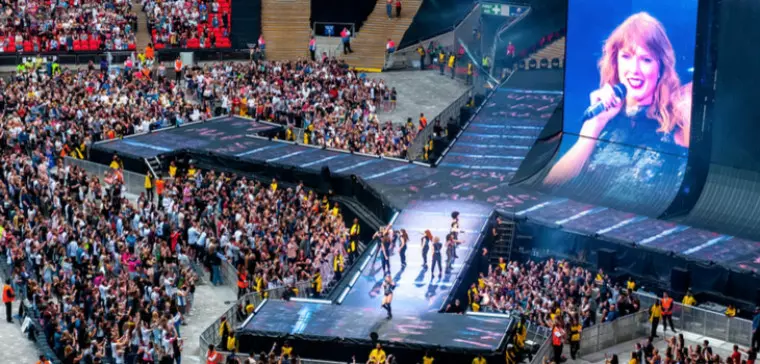The widespread rollout of facial recognition technology is coming, whether we like it or not. In fact, Reports that Taylor Swift used a facial recognition camera hidden inside a special rehearsal clip kiosk at her Los Angeles Rose Bowl concert in May is not in itself that shocking.

In her defense, the pop megastar has been the target of a number of stalkers, so her explanation that she used the technology to identify those who could pose a risk is reasonable.
Nevertheless, the incident has led privacy advocates to sound alarm bells about the growing use of facial technology and what the implications of this might be to our privacy.
As Jay Stanley, senior policy analyst for the ACLU told the Guardian:
“Stalkers are a generally scary phenomenon and everyone understands why someone like Taylor Swift would want to be protected against them. But this does have larger implications. It is not about this one deployment, it is about where this is technology is headed.”
The growing use of facial recognition tech
Use of facial recognition technology is on the rise around the world. As you might expect, it is widely used by police and border controls. Fewer people are aware though that it is also invading the commercial space. A staggering 59 percent of fashion retailers and a quarter of all shops in the UK deploy the technology.
Worryingly they are not just using it to identify shoplifters, a perhaps understandable use of the technology. They are increasingly using it help build detailed models of their customers’ shopping habits, which can be combined with other data drawn from social media accounts and web tracking. This helps them to create a detailed model of “consumer you,” allowing them to target you with ever more personalized ads.
In the UK (and Europe in general) GDPR should limit such behavior, but customers in the rest of the world have no such protection. In central London this Christmas the Metropolitan Police are trialing facial recognition on willing shoppers, but how long will it be before they stop asking for permission?
They certainly didn't ask permission from the largely Afro-Caribbean crowds attending the Noting Hill Carnival earlier this year in a surveillance operation described by critics, as having no basis in law and as institutionally racist.
Living in a panopticon
The Panopticon (literally “all observed”) is the invention of renowned English philosopher and social theorist Jeremy Bentham. It is a prison building designed to allow a single watchman to observe all the inmates.
![]()
No watchman can keep an eye on all the inmates, all of the time, but the genius of the design means that the inmates know they can be watched at any time.
Knowing this, the inmates would be forced to behave at all times as if they were being watched if they wished to avoid disciplinary measures. Bentham hailed the Panopticon as,
"A new mode of obtaining power of mind over mind, in a quantity hitherto without example."
We are becoming increasingly used to cameras following us whenever we leave the house, but the idea we're now living in a panopticon goes beyond simple analogy. Rather, it is a modern-day re-imagining far beyond what Mr. Bentham could ever have envisioned.
Forgetting the fact the technology is presently wildly inaccurate and runs the risk of falsely criminalizing innocent people, the Panopticon has become a powerful metaphor for the chilling effect that surveillance has on free speech.
As George Orwell understood, when people fear that anything they do might be watched at any time, they will behave accordingly. Facial recognition systems move this Orwellian nightmare out of the digital sphere into the physical world.
Such intrusive and highly personal surveillance will likely discourage many people from exercising their democratic right to peaceful protest (even when they attempt to conceal their identity). This alone won't be enough to avoid the cameras. We are now moving into the realm of facial recognition being used to pre-emptively identify potential criminals, in any crowd, before they have even committed a crime, each time they attend a music festival or concert for example.
Before we embrace this new technology we need a serious debate about the kind of world we want to live in. We also need to talk about who controls the technology, because in the wrong hands it could become an unparalleled tool of oppression, the likes of which even Mr. Orwell could not have written.
